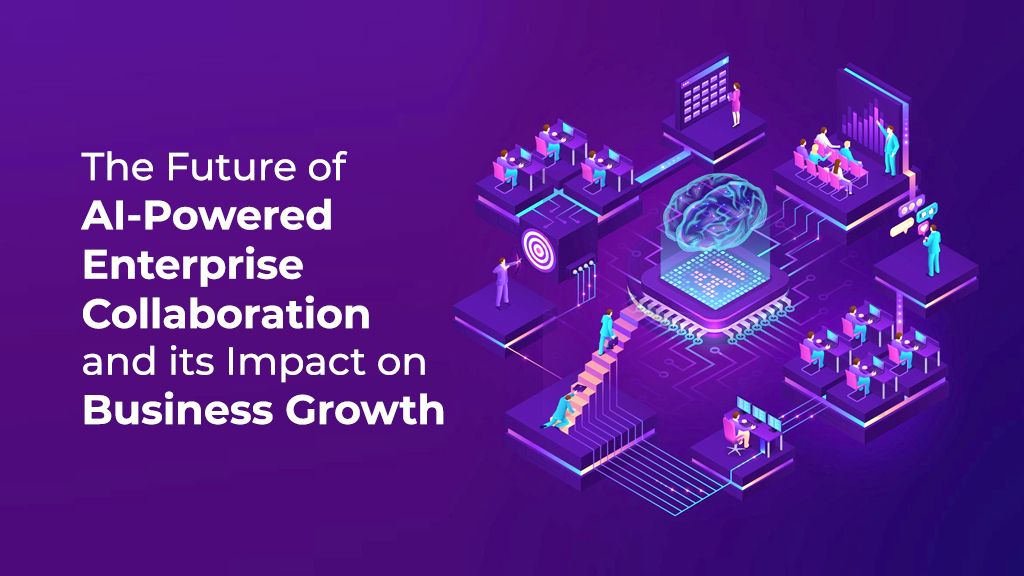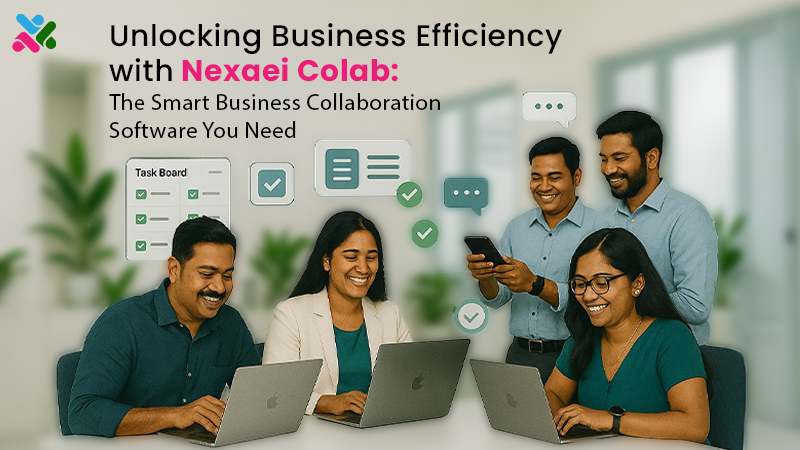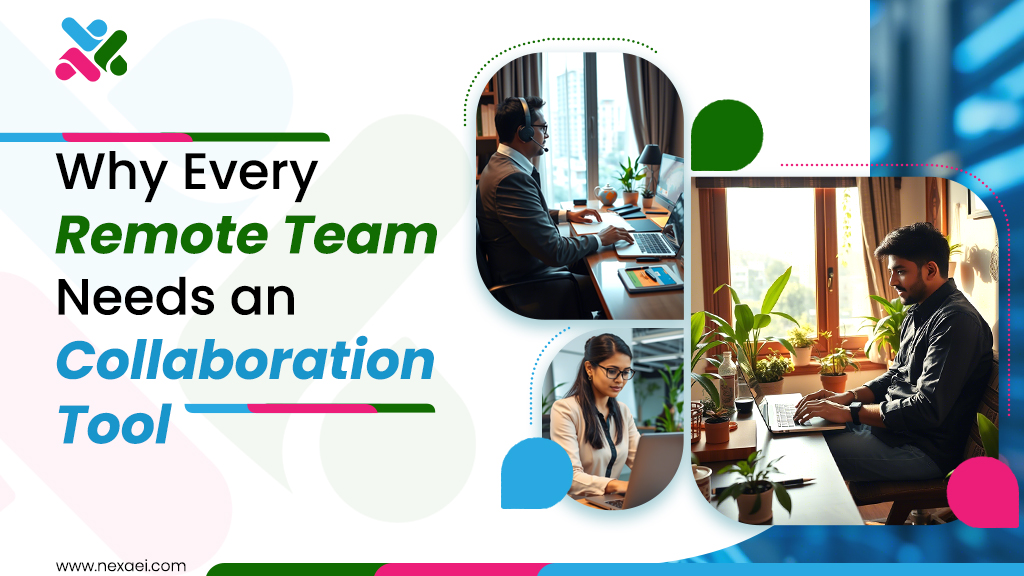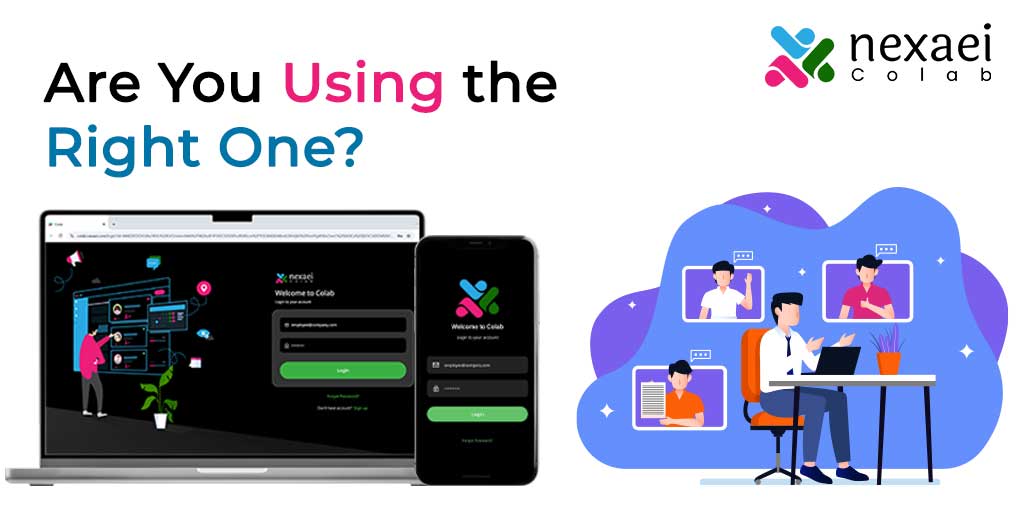The Future of AI-Powered Enterprise Collaboration System:
- Significance of enterprise collaboration in the business sector
- Role of business automation in upscaling enterprise collaboration
- How AI is revamping the future of enterprise collaboration?
- The impact of business automation on overall organizational growth
There is a growing buzz of Enterprise Collaboration System in the business sector as every organization is either planning to incorporate it or is already reaping its benefits. AI-based collaboration tools have aided organizations to adapt to the evolving business landscape, leverage the collective intelligence of their workforce, and stay competitive in today’s fast-paced and interconnected world.
A study by Gartner revealed a rise of 44% in the use of collaboration tools since 2019. In 2021, approximately 80% of workers harnessed collaboration tools, which is an increase of 44% since the commencement of the pandemic, compared to slightly over 50% of workers in 2019.
According to Christopher Trueman, a principal research analyst at Gartner, the significance of collaboration tools was revitalized during the COVID-19 pandemic due to their crucial role in maintaining productivity for teams transitioning to remote work. With numerous organizations now adopting long-term hybrid workforce models, a combination of cloud-based productivity technologies, personal and team productivity tools, and collaboration platforms will serve as the foundation for a range of new work hubs, catering to the needs of diverse remote and hybrid workers.
Also Read: Choose the Right Collaboration Software to Unleash Your Potential – Nexaei
Clearly, business automation emerges as the ultimate answer for organizations aiming to achieve seamless workflows and overall success. By leveraging AI-powered collaboration tools, organizations can achieve a higher level of accuracy and consistency in their processes. Manual errors and inconsistencies can be minimized, leading to improved productivity and quality of output. By automating routine tasks, employees can focus on more strategic and value-added activities, fostering creativity and innovation within the organization.
On that note, I would like to draw attention to the future trajectory of the business sector, wherein AI-powered enterprise collaboration emerges as a game-changing force.
How AI Is Reshaping the Future of Enterprise Collaboration System?
The future of AI-powered enterprise collaboration holds tremendous potential for transforming the way organizations work and collaborate. Here are some key aspects that are likely to transform the future of enterprise collaboration:
Intelligent Virtual Assistants: As automation is the linchpin of fostering collaborative progress, it becomes clear that AI-powered virtual assistants will progressively enhance their sophistication and ability to comprehend natural language and context. This advancement will facilitate effortless communication and collaboration among team members. These assistants can help schedule meetings, provide relevant information, automate repetitive tasks, and even offer suggestions for better enterprise collaboration.
Enhanced Data Analysis: AI algorithms in business automation will continue to evolve, enabling organizations to extract actionable insights from vast amounts of data generated within the enterprise. These insights then can be used to optimize collaboration processes, identify bottlenecks, improve decision-making, and enhance overall productivity.
Intelligent Document Processing: While bestowing enterprise collaboration with numerous benefits, AI-powered tools will also streamline document management and processing. Natural language processing (NLP) algorithms will enable intelligent extraction of information from documents, automated categorization and tagging, and advanced search capabilities. This will save time, improve accuracy, and make knowledge sharing more efficient.
Improved Security and Privacy: As technology is evolving every second, there will be a corresponding focus on ensuring robust security and privacy measures. AI-powered systems will need to adhere to strict data protection regulations, prevent unauthorized access, and implement advanced encryption and authentication mechanisms to safeguard sensitive information.
Human-AI Collaboration: The future of AI-powered enterprise collaboration is not about replacing humans but augmenting their capabilities. AI will work alongside humans, automating routine tasks, providing insights, and enhancing decision-making. This collaboration will free up human resources to focus on higher-value activities, creativity, and innovation.
Also Read: 5 Reasons Your Organization Should Invest in a Top-tier Collaboration Tool
Overall, the future of AI-powered enterprise collaboration holds great promise for enhancing productivity, driving innovation, and improving the overall efficiency of organizations. As technology continues to advance, organizations should embrace these opportunities while carefully considering the ethical implications and ensuring a balance between human and AI collaboration.
The Influence of AI-Powered Enterprise Collaboration on Business Growth
AI-powered enterprise collaboration can have a significant impact on business growth by enabling organizations to unlock various opportunities and overcome challenges. With business automation, organizations are now able to unlock a wide array of opportunities and overcome complex challenges. These advanced collaboration systems have facilitated seamless information sharing, efficient decision-making, and streamlined workflows across different teams and departments.
Below are several ways in which business growth has been influenced by AI-powered enterprise collaboration:
Increased Productivity: AI has automated repetitive tasks, streamlined workflows, and enhanced operational efficiency. By reducing manual efforts and optimizing processes, employees can focus on higher-value activities, leading to increased productivity and output. AI-powered collaboration tools facilitate seamless communication and knowledge sharing, enabling teams to work together more effectively and accomplish tasks faster.
Refined Decision-Making: AI algorithms can analyze large volumes of data, identify patterns, and provide valuable insights to support decision-making processes. By harnessing AI-powered analytics and data-driven recommendations, organizations can make more informed and accurate decisions. This leads to better resource allocation, risk management, and strategic planning, ultimately driving sustainable business growth.
Accelerated Innovation: Business automation nurtures creativity and innovation within organizations. By facilitating cross-functional collaboration and knowledge sharing, AI-powered tools help teams generate and refine ideas more efficiently. AI algorithms can also assist in identifying emerging trends, customer preferences, and market opportunities, enabling businesses to innovate and develop new products or services ahead of competitors.
Superior Customer Experience: Effective enterprise collaboration tools and platforms enable employees across different departments and locations to communicate and share information seamlessly. This leads to quicker response times, improved coordination, and ultimately, enhanced customer service. When teams can collaborate efficiently, they can address customer queries, concerns, and requests promptly, resulting in a more satisfying experience. Additionally, collaboration empowers team members to pool their knowledge, resources, and expertise, enabling them to offer customers timely, precise, and valuable support.
Agile and Remote Work: AI-enabled collaboration tools support the establishment of flexible and distributed workspaces. With AI-driven virtual assistants, real-time language translation, and immersive virtual collaboration spaces, teams can collaborate seamlessly regardless of geographical boundaries. This enables organizations to tap into global talent pools, foster diverse collaborations, and adapt to changing work dynamics, ultimately driving business growth.
Also Read: Decoding the Workplace Culture
Competitive Advantage: By leveraging AI-driven enterprise collaboration, businesses can differentiate themselves and gain a competitive advantage in the market. Organizations that embrace business automation are able to enhance collaboration, decision-making, and innovation and can respond more quickly to market changes, deliver superior products or services, and meet customer expectations more effectively. This positions them as industry leaders and enables sustainable business growth.
Cost Savings: AI-powered automation and optimization can result in cost savings for businesses. By automating routine tasks, reducing errors, and improving efficiency, organizations can optimize resource allocation and reduce operational expenses. Additionally, predictive analytics powered by AI can help optimize inventory management, supply chain operations, and demand forecasting, leading to cost savings and improved profitability.
In a nutshell, AI-powered enterprise collaboration system empowers organizations to leverage a perfect blend of technology and human expertise to drive business growth. By enhancing productivity, decision-making, innovation, customer experience, and agility, businesses can achieve competitive advantages and capitalize on emerging opportunities in a rapidly evolving digital landscape.







